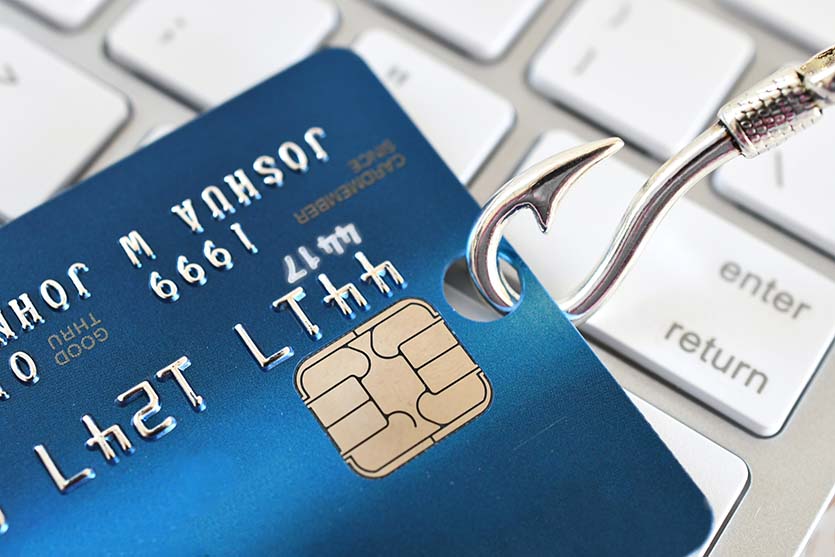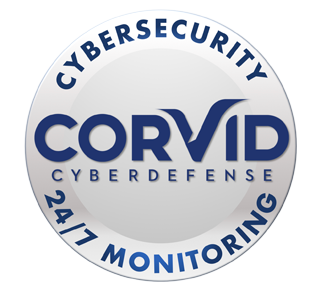 The face of identity theft has changed dramatically, evolving with the technology and economic landscape surrounding it. Understanding your exposure and staying informed of the trends and methods that thieves use to steal from you is the first step in a strong defense against identity theft.
The face of identity theft has changed dramatically, evolving with the technology and economic landscape surrounding it. Understanding your exposure and staying informed of the trends and methods that thieves use to steal from you is the first step in a strong defense against identity theft.
Step 1: Know how you’re exposed
- Simple, everyday activities can expose you to risk. Opening accounts, applying for a loan, bank card transactions, mailing checks, filling out medical forms, or even just speaking with a customer service representative over the phone can expose you to the risk of identity theft.
Step 2: Be proactive
- Always be protective of your personal information and avoid providing it whenever you can. You’ll want to maintain software updates and use VPN and firewalls for cybersecurity and properly file or dispose of any physical documents that you no longer need. While online accounts are one place where you may be exposed, electronic records and transactions are often much safer than physical ones.
Step 3: Recognize when you’re being targeted
- Imposter scams often involve someone asking you for help, claiming you owe money, or telling you that you’ve won money. These scams generally rely on a sense of urgency that funds must be sent immediately—if something sounds too good to be true, it probably is. Always refer to the official website for businesses or a number you know to be legitimate for any person you know.
Step 4: Report any fraud attempts
- Mark emails as spam so that your email provider can filter them more effectively in the future. Report IRS scams and spam emails to TIGTA’s IRS Impersonation Scam Reporting gov/tigta or call 800-366-4484. You can also report them to the Federal Trade Commission’s FT Complaint Assistant on FTC.gov. If you’re a victim of fraud, report the incident to all three major credit bureaus, place a hold on your credit, contact each of your creditors’ fraud department, contact your bank or financial institution, and report the incident to law enforcement.
Risk is a part of the world in which we live. We may not be able to avoid it entirely, but if you stay informed and work with professionals that understand the current landscape, you can remain a step ahead. Our professionals are happy to help you implement any of the measures discussed here. Feel free to contact me at (540) 720-5656 and we can work to keep your identity and your financial future secure.






















 Megan Jones joined the ILG Financial team in 2020 as marketing director. Megan and her husband live in Fredericksburg, VA with their German Short Haired Pointer, Gus. Megan is a graduate of Longwood University and holds a degree in communications. Megan is the oldest of Dave Lopez’s three children and not only enjoys working alongside her father, but also with her cousin, Chase, who joined the ILG Financial team in 2020 as an advisor. Megan is also a fully licensed Life, Health, and Annuity agent. When not at work, Megan enjoys sitting on the back porch with family and friends enjoying food and music.
Megan Jones joined the ILG Financial team in 2020 as marketing director. Megan and her husband live in Fredericksburg, VA with their German Short Haired Pointer, Gus. Megan is a graduate of Longwood University and holds a degree in communications. Megan is the oldest of Dave Lopez’s three children and not only enjoys working alongside her father, but also with her cousin, Chase, who joined the ILG Financial team in 2020 as an advisor. Megan is also a fully licensed Life, Health, and Annuity agent. When not at work, Megan enjoys sitting on the back porch with family and friends enjoying food and music. Chase Lopez joined the ILG Financial team in 2020 as an advisor. Chase is a 2016 James Madison University graduate with a degree in management. Chase has been trained under the tutelage of Dave Lopez, who is not only the founder and managing member of ILG Financial, but also is Chase’s uncle and godfather. He also enjoys working alongside his cousin, Megan, who is Dave’s daughter.
Chase Lopez joined the ILG Financial team in 2020 as an advisor. Chase is a 2016 James Madison University graduate with a degree in management. Chase has been trained under the tutelage of Dave Lopez, who is not only the founder and managing member of ILG Financial, but also is Chase’s uncle and godfather. He also enjoys working alongside his cousin, Megan, who is Dave’s daughter. Amy Anderson joined the ILG Financial team in 2023 as the client relations coordinator. Her responsibilities include scheduling of appointments, annual check-up notifications, and annuity and required minimum distribution assistance. She is a graduate of Harding University with a degree in Computer Information Systems. Amy and her husband have two children and she enjoys reading, crocheting, music and spending time with her family.
Amy Anderson joined the ILG Financial team in 2023 as the client relations coordinator. Her responsibilities include scheduling of appointments, annual check-up notifications, and annuity and required minimum distribution assistance. She is a graduate of Harding University with a degree in Computer Information Systems. Amy and her husband have two children and she enjoys reading, crocheting, music and spending time with her family. Jessica Carson joined the ILG Financial team in 2018 as an agent. Jessica and her husband have four children, two dogs, 3 barn cats, 5 chickens, and three parakeets. She indeed loves her children and pets! When not at work, Jessica enjoys playing the piano and cello as well as traveling and spending time outside with her family, hiking, fishing, and boating.
Jessica Carson joined the ILG Financial team in 2018 as an agent. Jessica and her husband have four children, two dogs, 3 barn cats, 5 chickens, and three parakeets. She indeed loves her children and pets! When not at work, Jessica enjoys playing the piano and cello as well as traveling and spending time outside with her family, hiking, fishing, and boating. Terri Center joined the ILG Financial team in 2019 as client services manager. She handles client records, application processing, and gathering information to provide a professional and friendly experience with all of our clients. Terri is a graduate of Oakland University. She is married and has two children. She enjoys hiking, family time, and puzzle challenging video games. She also likes to share her creativity in her canvas paintings and sewing projects.
Terri Center joined the ILG Financial team in 2019 as client services manager. She handles client records, application processing, and gathering information to provide a professional and friendly experience with all of our clients. Terri is a graduate of Oakland University. She is married and has two children. She enjoys hiking, family time, and puzzle challenging video games. She also likes to share her creativity in her canvas paintings and sewing projects.